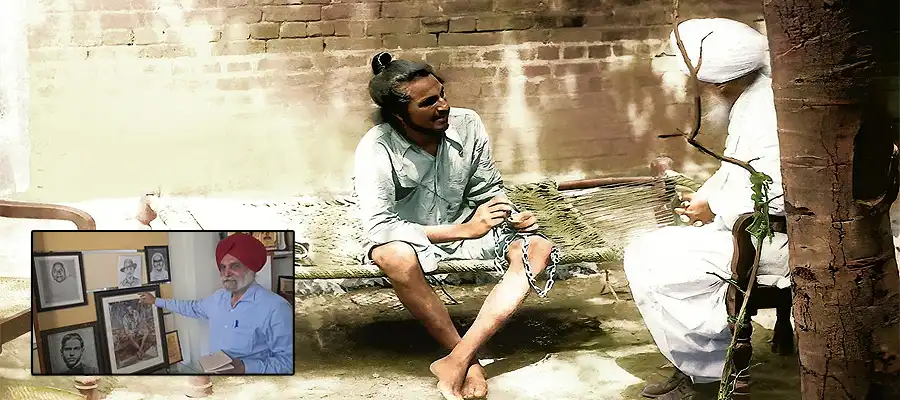The nation marks Shaheedi Diwas of Shaheed Bhagat Singh by discussing both his doctrine and his unpublished notes. Social media users strongly believe his National Herald failed to publish several sections from his jail diary which establish he did not believe in God (was an atheist). A complete explanation has been delivered through Professor Jagmohan Singh who is Bhagat Singh's nephew to distinguish authentic facts from baseless rumors.
The contents of Bhagat Singh’s Jail Diary reveal themselves.
Professor Jagmohan Singh stated Bhagat Singh received jail writing authorization from authorities in May 1930. He wrote down his Jail Diary notes when jailed between 1930 and 1931 and two of these produced publications. Bhagat Singh designated his famous atheist book "Why I Am an Atheist" as his authentic life story. The political and governmental analysis presented in "Science of State" stands as a central element alongside his other writings in his jail diary.
Professor Jagmohan Singh explained that the book ‘March to Socialism’ consists of two separate writings by Bhagat Singh: Why I Am an Atheist and Science of State. Professor Jagmohan Singh stated in his interview that everything Bhagat Singh wrote was published by his father through available materials back in 1931 which disproves the claim of suppression.
Does Historical Evidence Indicate that Bhagat Singh Practiced Atheism?
The religious discussion regarding atheism was explained by Professor Jagmohan Singh who divided Bhagat Singh's religious inquiry into three components.
1. Religious Individuals represent the category of personal faith because they perform religious ceremonies and offer prayers.
2. People who actively participate in peaceful religious gatherings without discriminating between different faiths represent Interfaith Respect.
3. The most radical expression of religious faith emerges as religious fanaticism when it produces social conflicts and splits between different communities.
In the opinion of Bhagat Singh religious extremism represents the most dangerous form of an obstacle to progress and a significant threat to state and social unity. Religious fanaticism turns a religion into a danger for both the state and social solidarity according to his writing. Some people mistakenly think his opposition to blind religious fanaticism amounts to atheistic beliefs. He maintained a position against absolute rejection of philosophical thought combined with spirituality.
Professor Jagmohan Singh emphasized that Bhagat Singh believed Purna Swaraj needed people to escape religious dogmatic beliefs and superstition for reason to bring true independence. His analysis focused on identifying religious abuse for political gains while specifically avoiding attacks on spiritual beliefs.
Bhagat Singh’s Connection to Sikhism
Professor Jagmohan Singh presented a recollection from his mother against the belief that Bhagat Singh showed no interest in religious philosophy. Singh went through a deep inquiry of the Guru Granth Sahib after the Nankana Sahib massacre by reading the holy book in its entirety.
The last hymn of Guru Tegh Bahadur received special attention from Bhagat Singh and Guru Gobind Singh ultimately emphasized this hymn as notable. Per Bhagat Singh the main lesson of that hymn declared that becoming self-reliant and powerful leads to resolving all challenges. Although he refused religious dogma Bhagat Singh displayed respect toward teachings which focused on strength and justice together with self-discipline.
Through his teachings Bhagat Singh offered guidance which matches today's youth generation.Professor Jagmohan Singh emphasized that readers should deeply understand Bhagat Singh’s writings rather than simply reading his work. The relevance of his thoughts persists today in the same manner as they did during 1931 despite religious hostility becoming prevalent political weapons.
He invited young people to assess Bhagat Singh's philosophy directly instead of adopting partial interpretations which corrupt his memory. A progressive society needs equality combined with justice and rational thinking just like Bhagat Singh did throughout his life.India must celebrate its revolutionary greatness by transforming mere word praise into active pursuit of unity while rejecting fanaticism toward the principles of justice together with rational thinking that Bhagat Singh dedicated his life to.
